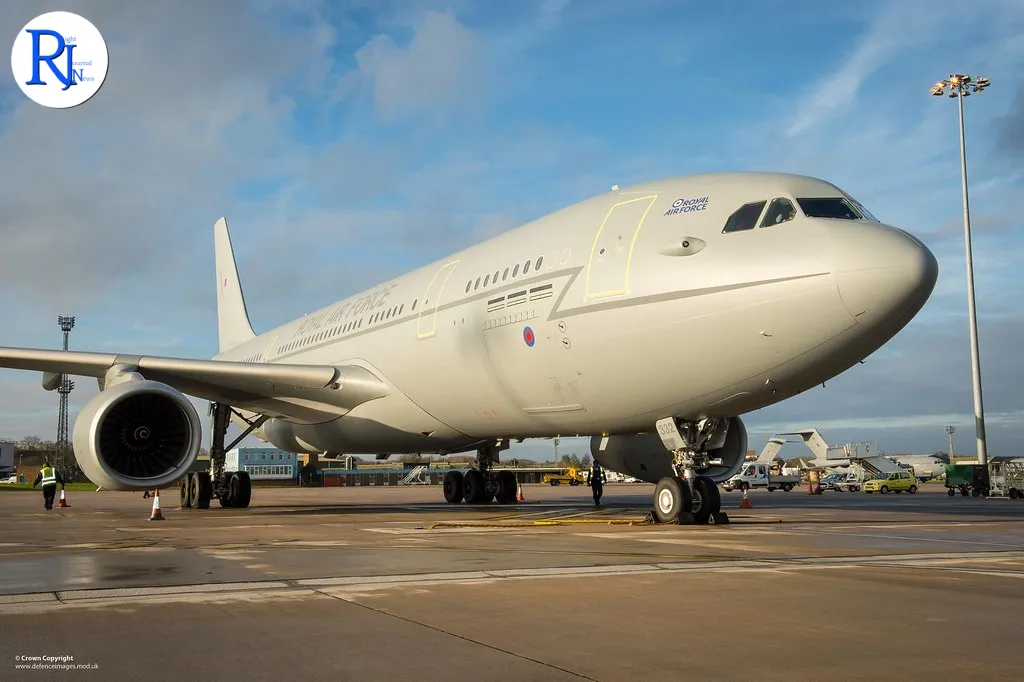In a significant development, four individuals have been charged in connection with a high-profile break-in at RAF Brize Norton, one of the UK’s largest Royal Air Force bases. The incident, which occurred on 20 June, resulted in extensive damage to two Voyager aircraft, with repair costs estimated at £7 million. The accused, whose identities have not yet been disclosed by authorities, are facing charges that include criminal damage and unauthorised access to a military installation. The case has raised serious concerns about security protocols at the base, which plays a crucial role in the UK’s defence operations.
The break-in took place in the early hours of 20 June at RAF Brize Norton, located in Oxfordshire. The base is known for housing the RAF’s fleet of transport and air-to-air refuelling aircraft. According to official reports, the intruders managed to bypass security measures and access restricted areas where the Voyager aircraft were parked. The damage inflicted on the aircraft was substantial, prompting an internal review of security procedures at the base.

Security Lapses Under Scrutiny
The incident has shone a spotlight on potential security lapses at RAF Brize Norton. Experts in military security have expressed concern over how intruders could gain access to such a sensitive area. “The breach at RAF Brize Norton is alarming and suggests a need for a comprehensive review of security protocols,” said Dr. Alan Thompson, a defence analyst. The Ministry of Defence (MoD) has confirmed that an investigation is underway to determine the exact circumstances that allowed the breach to occur.
The MoD has emphasised its commitment to maintaining the highest standards of security at all military installations. However, this incident highlights vulnerabilities that could be exploited by individuals with malicious intent. “Security at our bases is of paramount importance, and we are taking this breach very seriously,” stated an MoD spokesperson. The investigation will also assess whether additional measures, such as increased surveillance and personnel training, are necessary to prevent future incidents.
Impact on RAF Operations
The damage to the Voyager aircraft has had a direct impact on RAF operations. These aircraft play a vital role in the UK’s military capabilities, providing air-to-air refuelling and transport services for troops and equipment. The temporary loss of two Voyagers has necessitated adjustments in operational planning, although the RAF has assured that there has been no compromise to ongoing missions.
Efforts are underway to expedite repairs and return the damaged aircraft to service as soon as possible. “The Voyagers are a critical component of our operational fleet, and we are working diligently to minimise any disruption to our capabilities,” said Air Marshal Sir Michael Wigston, Chief of the Air Staff. The incident has also prompted discussions about the resilience of the RAF’s logistical support systems and their ability to adapt in response to unexpected challenges.
Legal Proceedings and Next Steps
The four individuals charged in connection with the break-in are scheduled to appear in court later this month. Legal experts anticipate that the case will focus on the extent of the damage caused and the motivations behind the intrusion. “This case will likely set a precedent for how similar breaches are handled in the future,” commented Sarah Collins, a legal analyst specialising in criminal law.
The charges brought against the individuals underscore the seriousness with which the authorities are treating this incident. If convicted, the accused could face significant penalties, including imprisonment and substantial fines. The legal proceedings will be closely watched by both security experts and the public, as they could have implications for future security policies at military installations.
The break-in at RAF Brize Norton serves as a stark reminder of the challenges faced in safeguarding critical infrastructure. As the investigation continues, the focus remains on strengthening security measures to prevent similar incidents from occurring in the future. The case has also sparked a broader conversation about the balance between openness and security at military sites, particularly those that play a pivotal role in national defence.
As the legal process unfolds and the investigation progresses, the military community and the public will be keenly observing the outcomes and any resulting policy changes. The incident underscores the importance of vigilance and proactive measures in ensuring the security of the UK’s defence assets.

